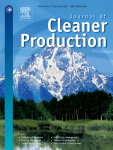|
Authors |
Abstract The global sustainability imperative requires dealing with food waste. This study explores how the management of school canteens can help school leaders on their path towards building more sustainable institutions. Despite scholars have largely shown the magnitude of food waste generated at school canteens, this paper shows that headteachers mistakenly perceive their canteens to be efficient in adjusting the amount cooked and that their pupils leave little plate waste. Data were collected through a survey among 420 school headteachers and a clustering analysis based on the schools’ sustainability profile was applied. Results show that schools can be categorized in 4 clusters: Activists, Environmentalists, Socials, and Laggards. A relevant contribution of this paper is that even in those clusters largely engaged in sustainability issues, canteen food waste reduction initiatives are rarely applied. Increasing school management’s visibility and awareness on the issue of food waste would result in more sustainable educational institutions. Another conclusion of the study is that although school sustainability is related to environmental rather than social initiatives, schools can follow two different paths on their way towards sustainability: either the social or environmental avenues. |
Altmetrics
|
|
Journal Journal of Cleaner Production, 10 January 2020, v.243, 118533 |
||
|
Publication date 2020-01-10 |
||
|
DOI |



